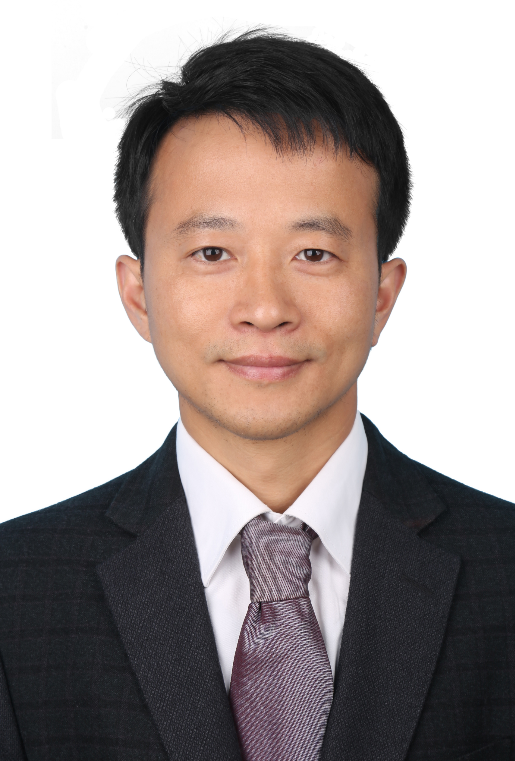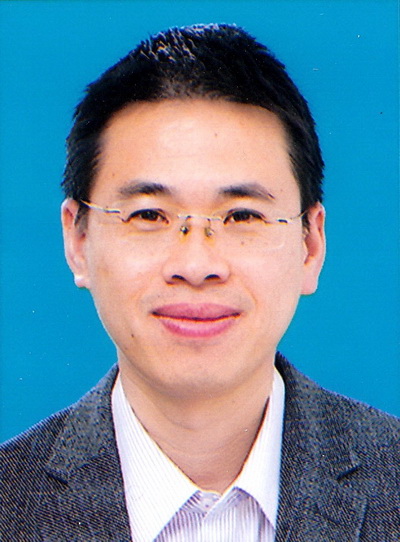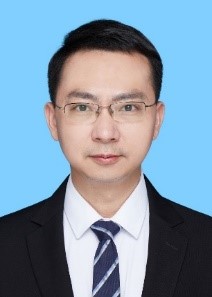
Keynote Speaker |
| Professor Junzhi Yu, Peking University, China IEEE Fellow, National Science Fund for Distinguished Young Scholars Bio:Junzhi Yu is a Boya Distinguished Professor and Ph.D. Supervisor at Peking University. He is an IEEE Fellow, recipient of the National Science Fund for Distinguished Young Scholars, Leading Talent of Category B under the National Major Talent Program, and has been selected into the National Hundred, Thousand, and Ten Thousand Talent Project. He serves on the editorial boards of several international journals, including IEEE Transactions on Robotics, IEEE/ASME Transactions on Mechatronics, Bioinspiration & Biomimetics, and Journal of Bionic Engineering. His main research directions include intelligent robots, mechatronics, and computational intelligence. He has published over 200 academic papers in the field of robotics and automation, including more than 100 papers in IEEE Transactions. He has been granted 56 invention patents in China and 6 US patents. His awards include the Second Prize of the National Natural Science Award (2017, ranked 3rd), the First Prize of Beijing Science and Technology Award (2013, ranked 2nd), and the First Prize of Natural Science Award of Chinese Association of Automation (2021, ranked 1st). His research directions: Intelligent robots (underwater bionic robots, mechatronics, swarm intelligence); Advanced robot control (intelligent control, bionic control); Embedded vision (image processing, embedded applications, vision applications); Medical image processing, and dental robots. |
| Keynote Speaker | |
| Professor Min Liu, Hunan University, China National Science Fund for Distinguished Young Scholars BIO:MinLiu, Second-Class Professor, Vice Dean, and core member of the National Engineering Research Center for Robot Visual Perception and Control Technology; recipient of the National Science Fund for Distinguished Young Scholars, Young Changjiang Scholar, and Chief Scientist of the National Key R&D Program.He has successively presided over major and key projects such as projects of the National Key R&D Program, key projects of the National Natural Science Foundation of China, and key international cooperation projects of the National Key R&D Program. He is also a Leading Talent in Science and Technology Innovation of Hunan Province and a recipient of the Hunan Provincial Outstanding Youth Fund. As the first author or corresponding author, he has published more than 40 papers in IEEE Transactions including IEEE TPAMI, 5 papers in journals with an Impact Factor (IF) greater than 20, and 22 papers in journals with an IF greater than 10. He has applied for over 70 invention patents, with more than 30 authorized.He has won the Second Prize of National Teaching Achievements (ranked 2nd), the First Prize of Science and Technology Progress of the China Society of Image and Graphics (ranked 1st), the First Prize of Science and Technology Progress of Hunan Province, the First Prize of Science and Technology Progress of the Chinese Association of Automation, and the Young Scientist Award of the Chinese Association of Automation. He serves as an editorial board member of journals such as IEEE Transactions on Neural Networks and Learning Systems and Journal of Command and Control. His research interests include robot vision, pattern recognition, and machine learning, with applications in fields such as industrial visual inspection, intelligent robots, and smart power. |
| Keynote Speaker | |
| Professor Badong Chen, Xi'an Jiaotong University, China National level talents Bio:Badong Chen is a professor at the Institute of Artificial Intelligence and Robotics, Xi 'an Jiaotong University and a Yangtze River scholar of the Ministry of Education. In 2008, he graduated from Tsinghua University with a doctorate in computer science. The research fields include machine learning, artificial intelligence, brain-computer interface, and robotics. He has published more than 300 academic papers in internationally renowned journals and conferences, and the papers have been cited more than 15,000 times. More than 30 national invention patents were authorized and 6 academic monographs were published. He was included in the list of top 2 % scientists in the world and Elsevier 's list of China 's highly cited scholars. It won the first prize of natural science of the Ministry of Education, the first prize of natural science of the Chinese Society of Automation, and the young scientist award of the Chinese Society of Automation. He is the director of Chinese Cognitive Science Association and the editorial board member of IEEE TNNLS / TCDS / TCSVT. He presided over the key projects of the National Natural Science Foundation of China, the key support projects of the National Natural Science Foundation of China, the key projects of the joint fund, the 973 plan project, the national key research and development plan project and other scientific research projects. |
| Keynote Speaker | |
 | Professor Chunquan Li, Nanchang University, China Bio: ChunquanLi, Professor, Doctoral Supervisor, Visiting Professor at Carleton University, Canada, and Ganjiang Distinguished Professor at Nanchang University. He is a National Baosteel Outstanding Teacher, the First Gold Medal Teacher of Jiangxi Province, a BaiQianWan Talent of Jiangxi Province, and Leader of the VR Innovation and Entrepreneurship Team of Jiangxi Province. He serves as a Review Expert of the Ministry of Science and Technology of China, a Review Expert for national-level talents and national major/key projects, a Discipline Evaluation Expert of the Ministry of Education, and a Review Expert for talent projects and scientific and technological projects in various provinces and cities across the country. He is also a Member of the Expert Committee of the National Virtual Reality Innovation Center, a Standing Member of the Force Haptic Perception and Interaction Professional Committee of the Chinese Society for Instrumentation, and a Member of the IEEE SMC (Systems, Man, and Cybernetics Society) Intelligent Wearables Committee. His main research directions: intelligent robots, virtual surgery simulation, intelligent human-computer interaction, embedded artificial intelligence, Internet of Things (IoT) systems, force-haptic feedback technology, brain-computer interface (BCI), and artificial intelligence technology and its applications in industry and medicine. Main research achievements: He took the lead internationally in proposing electromagnetic force-haptic feedback interaction technology and devices based on natural gesture interaction, and realized audio-visual-haptic multi-channel natural human-computer interaction technology and devices based on natural gesture interaction. He developed the first domestic high-immersion virtual-real integrated neurosurgical virtual surgery training system, achieving high-immersion multi-modal surgical simulation training based on the audio-visual-haptic trinity. He also developed a cloud-connected human-computer interaction intelligent medical comprehensive service platform. |
| Keynote Speaker | |
 | Professor Jiahu Qin, University of Science and Technology of China, China Bio: Jiahu Qin is a professor and doctoral supervisor at the University of Science andTechnology of China, with primary research interests in cooperative, optimizationand decision-making aspects of autonomous intelligent systems. He has publishedtwo Springer English monographs and over 100 papers in flagship journals such asAutomatica and lEEE Transactions. He holds more than 40 authorized Chineseinvention patents. He has led more than ten national and provincial-level projects,including the National Distinguished Young Scholars Fund, Outstanding YoungScholars Fund, Fok Ying Tung Young Teachers Fund, Young Talent Program underthe Overseas High-level Talent Introduction Plan, Joint Fund Key Projects, and theScience and Technology Innovation 2030 Major Project on "New Generation ArtificialIntelligence." He has received numerous awards, including the First-Class NaturalScience Award of the China Automation Society (ranked 1st), First-Class TechnologyInvention Award of the China Automation Society (ranked 1st), First-Class NaturalScience Award of Heilongjiang Province (ranked 3rd), China Automation SocietyYouth Scientist Award, Guan Zhao-Zhi Award of the Chinese Control |


